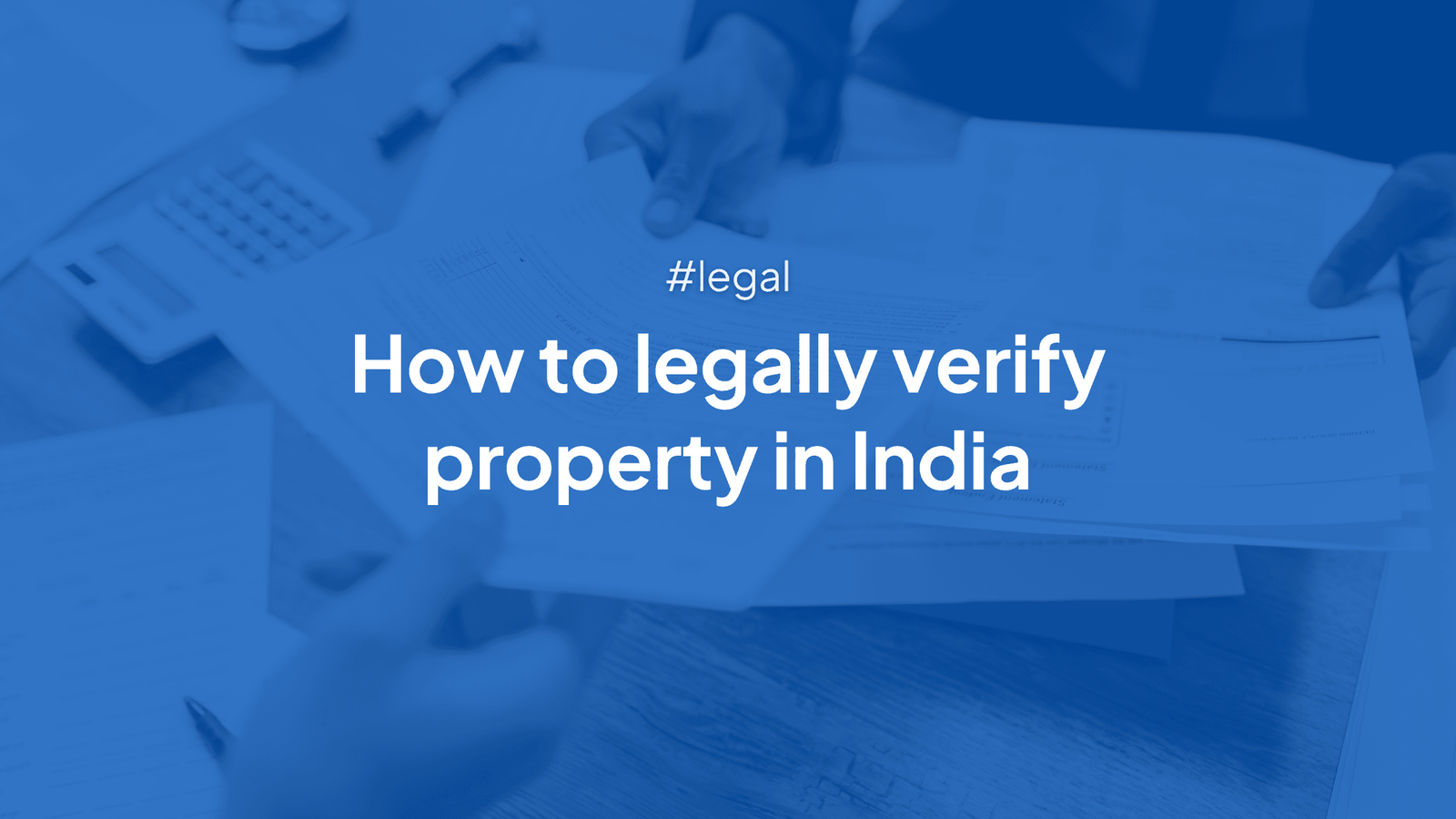How to legally verify property when search for the first time is one of the most crucial steps before purchasing any real estate be it a plot, flat, or commercial space. With the rise in fraudulent property deals, title disputes, and illegal constructions, skipping legal verification can cost buyers their peace of mind, and worse, their money.
In this detailed guide, we will walk you through the exact steps on how to legally verify property in India to ensure you make a safe and legally sound investment.
1.Check the Property Title Deed
The first and most important step in how to legally verify property is reviewing the title deed.
- Ask for the original title deed from the seller.
- Verify that the seller is the actual and legal owner.
- Look for a clear title with no liens, disputes, or pending claims.
- Confirm the chain of ownership through previous sale deeds.
It’s best to consult a property lawyer to authenticate the deed.
2. Obtain the Encumbrance Certificate (EC)
The Encumbrance Certificate is a legal document that shows whether the property has any pending legal or financial liabilities.
- Apply for the EC at the Sub-Registrar’s Office or online (in some states).
- Request a record for 13–30 years for thorough verification.
- A “Nil” EC means the property is free of encumbrances.
This step is vital in understanding how to legally verify property in India, especially for resale properties.
3. Verify RERA Registration for New Projects
Another essential tip in how to legally verify property in India is checking if the project is registered under RERA.
- Go to your state’s official RERA portal (like rera.tn.gov.in).
- Enter the builder or project name.
- Confirm the registration number, land details, and approvals.
RERA registration ensures the project is legal, approved, and monitored by authorities.
Read: How to Register a Complaint in RERA? Know the Procedure step by step
4. Check Land Use and Zoning Approval
To continue learning how to legally verify property in India, make sure the land use is appropriate:
- Visit the municipality or town planning department.
- Confirm if the land is zoned for residential or commercial use.
- Cross-check with the city’s master plan.
Zoning issues can result in your property being declared illegal or demolished in the future.
5. Confirm Property Tax and Utility Payments
Always check if property tax, electricity, and water bills have been paid.
- Ask for the latest receipts.
- Ensure they’re in the seller’s name.
- Verify there are no outstanding dues.
These checks are a must when figuring out how to legally verify property in India to avoid inheriting hidden liabilities.
6. Review Building Plan Approvals and Certificates
If you’re buying an apartment or a builder floor, ask for the following:
- Approved building plan
- Commencement Certificate (CC)
- Completion Certificate
- Occupancy Certificate (OC)
These documents confirm that the building was constructed legally and is ready for occupation. It’s a legal necessity in how to legally verify property in India for under-construction or recently completed properties.
7. Examine Legal Heirship or Partition Documents (If Applicable)
For inherited or ancestral properties:
- Request a legal heir certificate or registered partition deed.
- Ensure all legal heirs are on board and have signed the sale agreement.
This step is especially important when understanding how to legally verify property in India to avoid future family disputes.
8. Conduct an Independent Legal Title Search
You should conduct a thorough legal title search through:
- A property lawyer
- The Sub-Registrar’s Office records
- An independent legal agency
This gives you a full report on the property’s legal history and highlights any red flags.
9. Consider Title Insurance
One final step in how to legally verify property in India is opting for title insurance, especially in high-value or disputed areas.
- Protects you against fraudulent claims, unknown heirs, or legal defects in title.
- Offered by various Indian insurers.
Final Thoughts
Knowing how to legally verify property in India is not just a technical checklist—it’s your defense against fraud, stress, and potential legal battles. Whether you’re buying your first home or investing in a commercial property, always:
- Verify documents
- Hire a real estate lawyer
- Avoid shortcuts or verbal promises
🏠 Safe property buying starts with smart legal due diligence.



